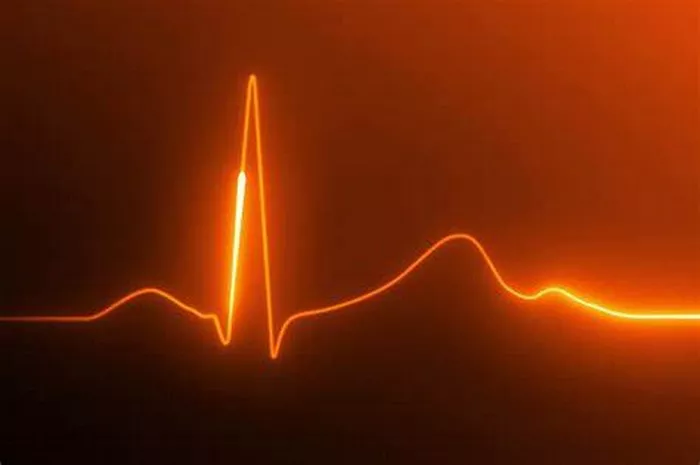Heart arrhythmia, also known as irregular heartbeat, is a condition that affects millions of people worldwide. It can manifest in various ways, from occasional palpitations to more serious and persistent rhythm disturbances. For those living with heart arrhythmia, a common question that arises is whether this condition will go away on its own or require medical intervention. In this comprehensive article, we will delve into the intricacies of heart arrhythmia, explore its potential causes, discuss treatment options, and address the possibility of its resolution.
Understanding Heart Arrhythmia
Heart arrhythmia refers to abnormal electrical activity in the heart, leading to irregular heartbeats. This irregularity can cause the heart to beat too fast (tachycardia), too slow (bradycardia), or in an erratic pattern. Common types of arrhythmias include atrial fibrillation, atrial flutter, ventricular tachycardia, and ventricular fibrillation. Symptoms of heart arrhythmia may include palpitations, chest discomfort, shortness of breath, dizziness, and fatigue.
Causes of Heart Arrhythmia
Heart arrhythmias can stem from various factors, including:
1. Electrolyte Imbalances: Fluctuations in potassium, magnesium, or calcium levels can disrupt the heart’s electrical signals.
2. Heart Conditions: Pre-existing heart conditions such as coronary artery disease, heart valve disorders, or cardiomyopathy can increase the risk of arrhythmias.
3. High Blood Pressure: Hypertension can strain the heart and contribute to rhythm disturbances.
4. Thyroid Disorders: An overactive or underactive thyroid gland can influence heart function and rhythm.
5. Stress and Anxiety: Emotional stress and anxiety can trigger palpitations and irregular heartbeats.
6. Substance Abuse: Excessive alcohol consumption, smoking, or illicit drug use can impact heart rhythm.
7. Medications: Certain medications, including those for asthma, high blood pressure, or psychiatric disorders, may predispose individuals to arrhythmias.
Diagnosis and Evaluation
Diagnosing heart arrhythmia typically involves a thorough medical history review, physical examination, and diagnostic tests such as:
1. Electrocardiogram (ECG/EKG): This test records the heart’s electrical activity and can detect rhythm abnormalities.
2. Holter Monitor: A portable device worn for 24 to 48 hours to monitor heart rhythm continuously.
3. Event Monitor: Similar to a Holter monitor but used for longer periods to capture intermittent arrhythmias.
4. Echocardiogram: An ultrasound of the heart to assess its structure and function.
5. Stress Test: Evaluates heart function during physical activity.
Treatment Approaches
The management of heart arrhythmia depends on several factors, including the type and severity of the arrhythmia, underlying health conditions, and individual risk factors. Treatment options may include:
1. Lifestyle Modifications: Adopting a heart-healthy lifestyle can help manage arrhythmias. This includes maintaining a balanced diet, regular exercise, managing stress, avoiding stimulants like caffeine and tobacco, and moderating alcohol consumption.
2. Medications: Antiarrhythmic medications may be prescribed to control heart rhythm and prevent recurrence of arrhythmias.
3. Cardioversion: In certain cases, electrical cardioversion may be performed to restore normal heart rhythm.
4. Catheter Ablation: A minimally invasive procedure where abnormal heart tissue responsible for arrhythmias is targeted and eliminated.
5. Implantable Devices: For persistent or high-risk arrhythmias, implantable devices such as pacemakers or implantable cardioverter-defibrillators (ICDs) may be recommended.
6. Surgical Interventions: In rare instances, surgical procedures like maze surgery may be considered for severe or refractory arrhythmias.
Prognosis and Long-Term Outlook
The prognosis for heart arrhythmia varies depending on factors such as the type of arrhythmia, underlying health conditions, treatment effectiveness, and lifestyle modifications. In some cases, arrhythmias may resolve or become less frequent with appropriate management. However, certain types of arrhythmias, especially those associated with structural heart disease, may require ongoing monitoring and treatment.
Conclusion
Heart arrhythmia is a complex condition that requires careful evaluation and management. While some individuals may experience temporary or occasional arrhythmias that resolve on their own, others may require medical intervention to control symptoms and reduce the risk of complications. With advancements in cardiac care and a holistic approach to heart health, individuals living with heart arrhythmia can lead fulfilling lives with proper treatment and lifestyle adjustments.
Remember, if you experience symptoms suggestive of heart arrhythmia, such as palpitations, chest discomfort, or dizziness, seek medical attention promptly for an accurate diagnosis and personalized treatment plan.


